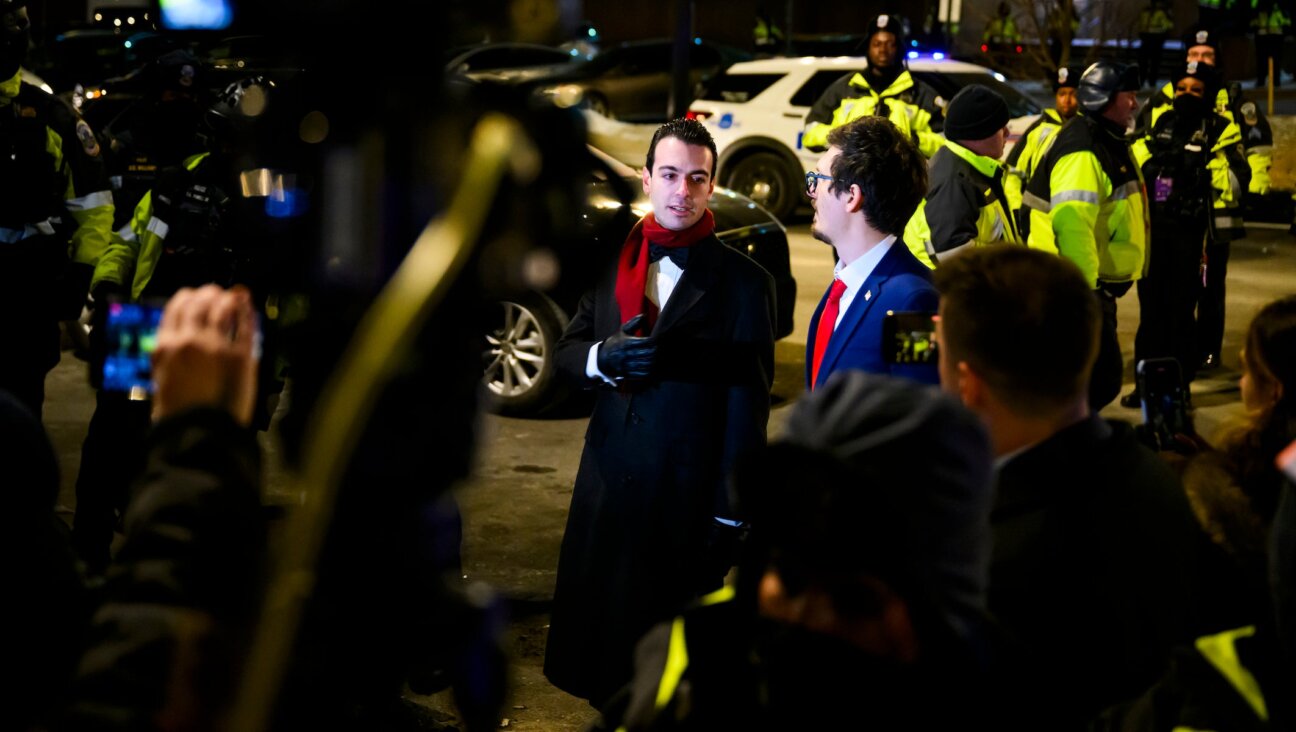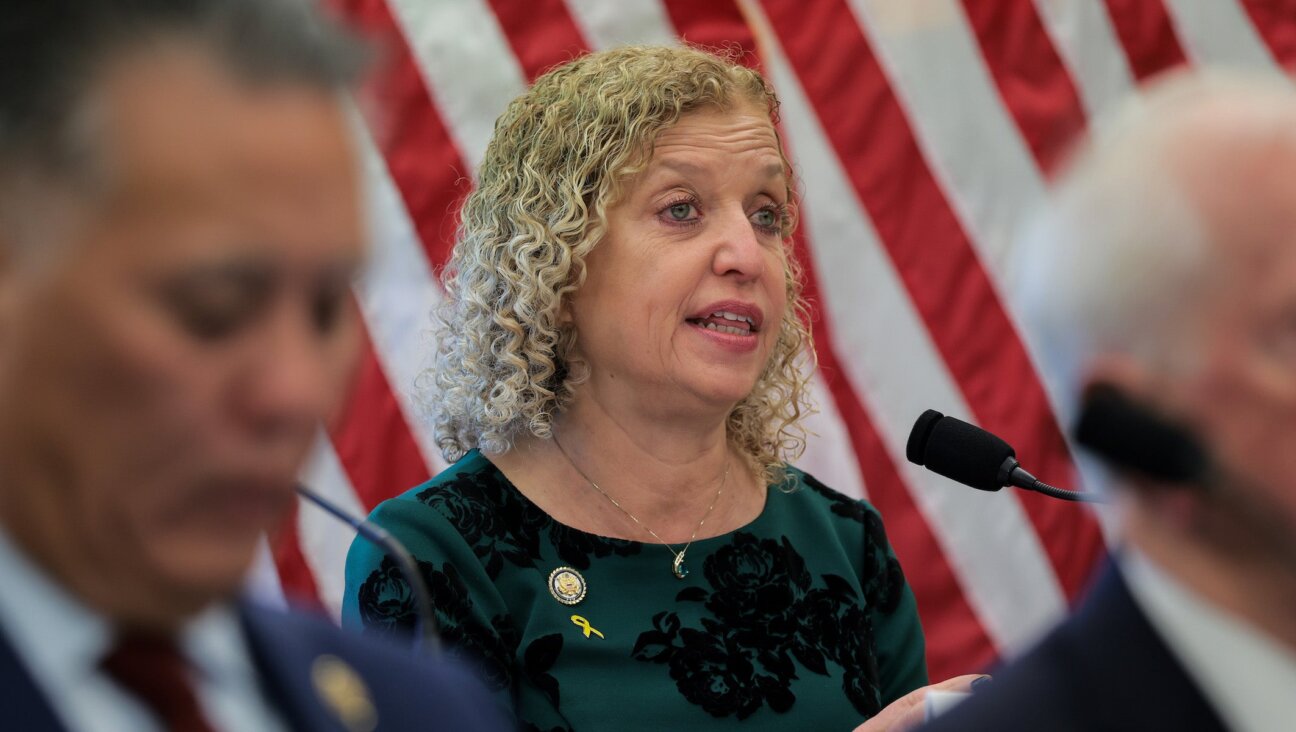DOJ nominee Kristen Clarke recommits to fighting religious discrimination

Graphic by Angelie Zaslavsky
Kristen Clarke, whose nomination to lead the Civil Rights Division of the Department of Justice has drawn controvsersy because of her prior actions around race and antisemitism, assured members of Congress on Wednesday that she would protect religious rights and fight against religious discrimination and antisemitism if she is confirmed.
“I will give great attention to ensuring that we stand up for religious liberty, and beat back religious discrimination — using the laws that the division has at its disposal,” Clarke told members of the Senate Judiciary Committee at her confirmation hearing.
Last month, Sen. Mike Lee, a Republican from Utah, drew attention to past comments made by Clarke – which were recently featured on conservative news websites – about racial superiority and highlighted her role in organizing a 1994 event while at Harvard University that featured antisemitic comments by a controversial professor.
Dozens of major Jewish organizations expressed support for her nomination and pushed back against what they described as misleading allegations.
Clarke, who is president of the Lawyers’ Committee for Civil Rights Under Law, headed the civil rights bureau at New York Attorney General Eric Schneiderman’s office. During her tenure there, Clarke spearheaded a religious-rights initiative that promoted religious accommodation and ensured that Jewish employees were given flexibility so that they could observe the Sabbath and other holy days.
At the hearing, Clarke was questioned by Republican senators about previous statements on the defunding of the police movement and religious freedom, as well as her role while in college in the 1990s organizing an event that featured antisemitic comments by a controversial professor.
“With the threat of white supremacy and violent antisemitism on the rise in our country, to accuse someone like Kristen Clarke of engaging in antisemitism is as laughable as it is offensive,” said Sheila Katz, chief executive of the National Council of Jewish Women, a group that is lobbying for Clarke’s confirmation. “Those seeking to use this line of attack are not only engaging in misinformation, but are making the work of confronting real antisemitism harder.”
In one exchange, Josh Hawley, a first-term Republican senator from Missouri, challenged Clarke about her reaction to the Supreme Court ruling striking down New York Gov. Andrew Cuomo’s executive order limiting religious gatherings at houses of worship during the coronavirus pandemic. He was speaking of her post on Twitter at the time, which read: “This is a newly configured Supreme Court, one with Justices who place religious freedom above ALL else even in the context of a deadly pandemic.”
“Are we to take from that that you think it is OK for executive officials to target religious communities, religious minorities — in particular, in this case, Orthodox Jews?” Hawley asked.
“No, Senator,” Clarke responded. “I think religious liberty is important. I think fighting religious discrimination is important. This is something I’ve done throughout my career.”
Pressed again about the tweet, Clarke clarified that her reaction was an expression of her concerns about the spread of the virus and her views about the steps she thought “public health officials needed to take to help bring down the death rate, and to help save lives.”
“The Civil Rights Division has in its arsenal a number of tools to ensure actually that churches and houses of worship are not subject to discrimination,” she said. “This is work I’ve done throughout my career and that I would look forward to doing if confirmed to this role.
Towards the end of the hearing, Sen. Richard Blumenthal, a Democrat from Connecticut, handed Clarke the opportunity to put the allegations to rest in what he described as a direct appeal to the Jewish community.
“I could not be an effective civil rights lawyer if I did not have the ability and capacity to work with, alongside, and on behalf of all people of all backgrounds, regardless of race, religion, national background and more,” she said, mentioning her prior roles and the support she got from Jewish groups.
“Antisemitism is real, and it’s something that I have fought throughout my career,” Clarke added. “It is not lost on me that Jewish people continue to suffer from antisemitism and this is an ill that I hope to fight back against, if confirmed to the role.”
The committee has yet to schedule a date to vote on her confirmation.
In a letter sent to the committee on Monday, Rabbi Joe Potasnik, executive vice president of the New York Board of Rabbis, noted that Observant Jews were “major beneficiaries” of the program Clarke supervised at the New York attorney general’s office. “Her dedication to and advocacy for the Jewish community produced real results,” Potasnik wrote in the letter, obtained by the Forward. “Her work as a protector of the rights of observant Jews stands in sharp contrast to the baseless charges of anti-Semitism now being made against her.”
























